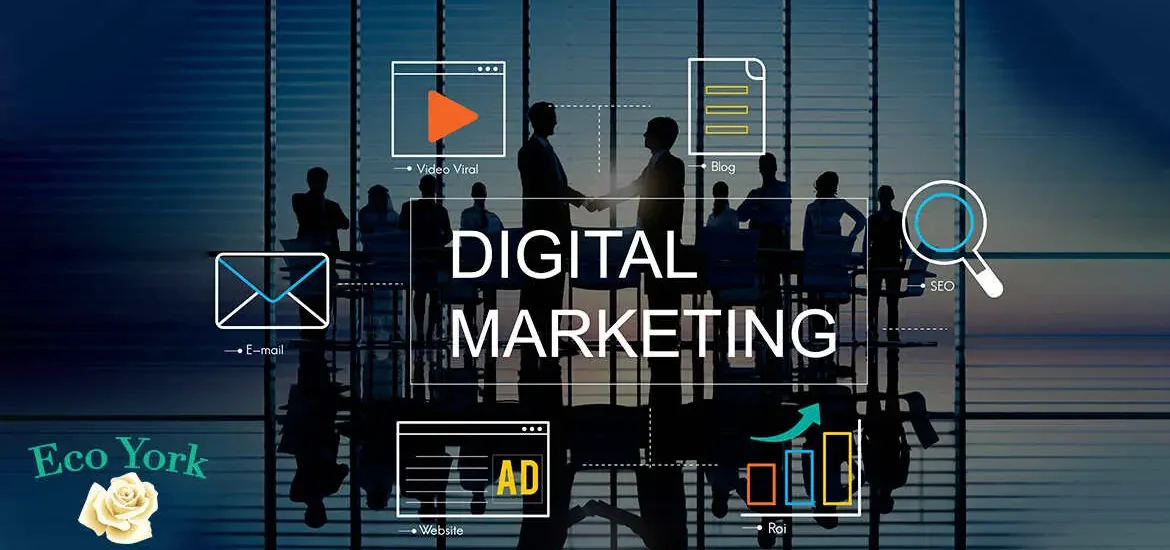As the digital world continuously evolves, keeping up with the latest digital marketing trends is vital for businesses looking to optimize their return on investment (ROI). Rapid technological advancements are pushing marketers to discover innovative methods for audience engagement and conversion driving. By 2025, several new trends will revolutionize digital marketing strategies, creating novel opportunities to enhance efficiency, personalization, and customer engagement. This post delves into these critical trends, providing valuable insights into how they can be utilized to boost your ROI effectively.
The Impact of AI and Automation on Marketing
Artificial Intelligence (AI) and automation are transforming marketing strategies, enabling smarter decision-making and greater operational efficiency. By analyzing vast datasets in real-time, AI provides marketers with valuable insights into consumer behaviors and preferences. This data-driven approach allows businesses to create highly targeted campaigns, ensuring the right messages reach the right audiences. Automation complements AI by streamlining routine tasks like email marketing, social media scheduling, and customer service, thus freeing up time and resources for more strategic initiatives. These technologies also facilitate predictive analytics, helping marketers anticipate trends and customer needs more accurately. For example, AI-driven chatbots can handle customer inquiries 24/7, providing instant support and gathering data for further analysis. Automation tools can also personalize customer interactions at scale, delivering tailored content and recommendations based on individual user data. By integrating AI and automation into their marketing efforts, companies can not only enhance customer engagement but also optimize their ROI through improved efficiency and more effective targeting. As these technologies continue to evolve, staying updated on the latest advancements will be crucial for businesses aiming to maintain a competitive edge.
Scaling Personalization Efforts
In an era where consumers demand bespoke experiences, data-driven marketing has become paramount. Personalization is about customizing content, offers, and recommendations to suit individual tastes, significantly boosting customer engagement and loyalty. Advanced analytics and AI-powered tools enable marketers to segment audiences with precision and deliver messages that resonate on a personal level. This approach not only heightens customer satisfaction but also elevates ROI by driving higher conversion rates and transaction values.
With the wealth of data businesses collect, the challenge lies in scaling these personalized efforts. AI tools can automate this process, ensuring that each customer interaction feels unique, even as the customer base grows. Real-time data processing allows for dynamic adjustments, providing relevant content and recommendations in the moment. For instance, e-commerce platforms can suggest products based on browsing history, while streaming services can recommend shows tailored to individual viewing habits.
Incorporating machine learning algorithms can further refine personalization strategies. These algorithms learn from each interaction, continuously improving the accuracy of their predictions. This creates a virtuous cycle where more personalized experiences lead to increased engagement, which in turn generates more data for further refinement.
As businesses look towards 2025, investing in technologies that enable scalable personalization will be essential for maintaining a competitive edge and driving substantial ROI gains.
The Rise of Video Content
Video content has emerged as a pivotal element in digital marketing strategies, capturing audience attention and delivering complex messages with ease. New formats and platforms are constantly being introduced, from short-form videos on social media to live streaming and interactive content, each providing unique ways to engage viewers. This shift towards video is driven by its ability to create immersive experiences that text and static images struggle to achieve. For instance, short-form videos on platforms like TikTok and Instagram Reels are perfect for quick, impactful storytelling, while live streams offer real-time interaction with audiences, fostering a sense of community and immediacy.
Interactive video content is another game-changer, allowing viewers to engage directly through clickable elements, quizzes, and polls. This level of interactivity not only keeps audiences engaged longer but also provides valuable insights into consumer preferences and behaviors. Additionally, video content is highly shareable, increasing its reach organically as users distribute it within their networks.
The rise of video is also closely tied to advancements in technology, such as improved mobile internet speeds and higher-quality cameras on smartphones, making video production more accessible than ever. By integrating various types of video content into their marketing mix, businesses can tap into a powerful medium that drives higher engagement, better brand recall, and ultimately, an increased return on investment.
Importance of Voice and Visual Search
As more consumers integrate smart speakers and visual search apps into their daily routines, these technologies are reshaping the way people seek information online. Voice search, powered by natural language processing, allows users to speak their queries, making search interactions faster and more intuitive. This trend demands that businesses optimize their content to match conversational queries, ensuring they remain visible in voice search results. High-quality, natural language content is key to capturing voice search traffic.
Similarly, visual search uses image recognition technology to enable users to find information through images rather than text. Platforms like Pinterest and Google Lens are leading the charge, allowing users to upload photos or use their camera to search for similar items. For businesses, this means optimizing images with relevant metadata and ensuring their visual content is both high-quality and easily recognizable by search engines.
Both voice and visual search provide unique opportunities for engaging customers in new ways. As these technologies continue to evolve, integrating them into your digital marketing strategy can enhance user experience and drive more qualified traffic to your site. This, in turn, can increase conversions and improve overall marketing performance. Keeping up with advancements in these areas will be essential for maintaining a competitive edge in the coming years.
Sustainable and Ethical Marketing Practices
As consumers become more aware of environmental and social issues, they increasingly favor brands that embody sustainable and ethical values. Incorporating these principles into marketing strategies can significantly enhance brand reputation and customer loyalty. This means adopting transparent communication about ethical sourcing, reducing carbon footprints, and engaging in community initiatives. Businesses can showcase their commitment through storytelling, highlighting efforts such as using recycled materials or supporting fair trade practices. Marketing campaigns that emphasize sustainability resonate deeply with eco-conscious consumers, creating emotional connections that drive engagement and sales. Additionally, ethical marketing involves honest advertising, avoiding misleading claims, and respecting consumer privacy. By integrating sustainability and ethics into their core values, brands not only meet consumer expectations but also contribute positively to society and the environment. This approach can differentiate a brand in a crowded market, appealing to a growing demographic that values corporate responsibility.
Data Protection and Privacy Concerns
In an era where data-driven marketing is paramount, protecting consumer data and addressing privacy concerns are more critical than ever. Businesses must navigate complex regulations like GDPR and CCPA to ensure compliance and maintain consumer trust. This involves implementing stringent data security measures, such as encryption and regular security audits, to safeguard sensitive information. Transparent data collection practices are also essential. Informing customers about what data is being collected, how it will be used, and obtaining explicit consent can go a long way in building trust. Additionally, offering easy opt-out options respects consumer autonomy and strengthens the customer relationship.
Companies should also stay updated on evolving privacy regulations and industry best practices to remain compliant. Investing in data privacy training for employees can help prevent breaches caused by human error. Leveraging technologies like blockchain can provide an added layer of security and transparency in data transactions. Furthermore, anonymizing data where possible can minimize risks while still allowing for valuable insights. In a landscape where cyber threats are constantly evolving, proactive measures in data protection not only mitigate risks but also position a brand as a trustworthy entity.
Recap and Future Predictions for Digital Marketing
As we look towards 2025, several key trends are set to redefine digital marketing, presenting both challenges and opportunities for businesses. Personalization will continue to be a major focus, with AI and machine learning enabling more tailored customer experiences. Video content is expected to dominate marketing strategies, thanks to its ability to engage audiences in ways that static images and text cannot. Additionally, the rise of voice and visual search technologies will change the way consumers interact with online content, making it crucial for businesses to adapt their SEO strategies accordingly.
Sustainability and ethics will play a larger role in shaping brand identities, as consumers increasingly support businesses that align with their values. This shift will not only impact marketing strategies but also drive organizational changes towards more sustainable practices.
Data privacy and protection will remain at the forefront of digital marketing, with businesses needing to balance data-driven insights with stringent security measures to maintain consumer trust. As regulations evolve, staying compliant will be essential for building and sustaining customer relationships.
Emerging technologies such as augmented reality (AR) and virtual reality (VR) are also expected to gain traction, offering innovative ways for brands to create immersive experiences. These technologies can enhance product demonstrations, virtual try-ons, and interactive advertising, providing new avenues for customer engagement. Ultimately, staying ahead in the digital marketing landscape will require a proactive approach, with continuous learning and adaptation. Businesses that leverage these trends effectively will not only boost their ROI but also build stronger, more meaningful connections with their audience. By embracing innovation and maintaining a focus on customer-centric strategies, companies can thrive in the dynamic digital environment of 2025 and beyond.






